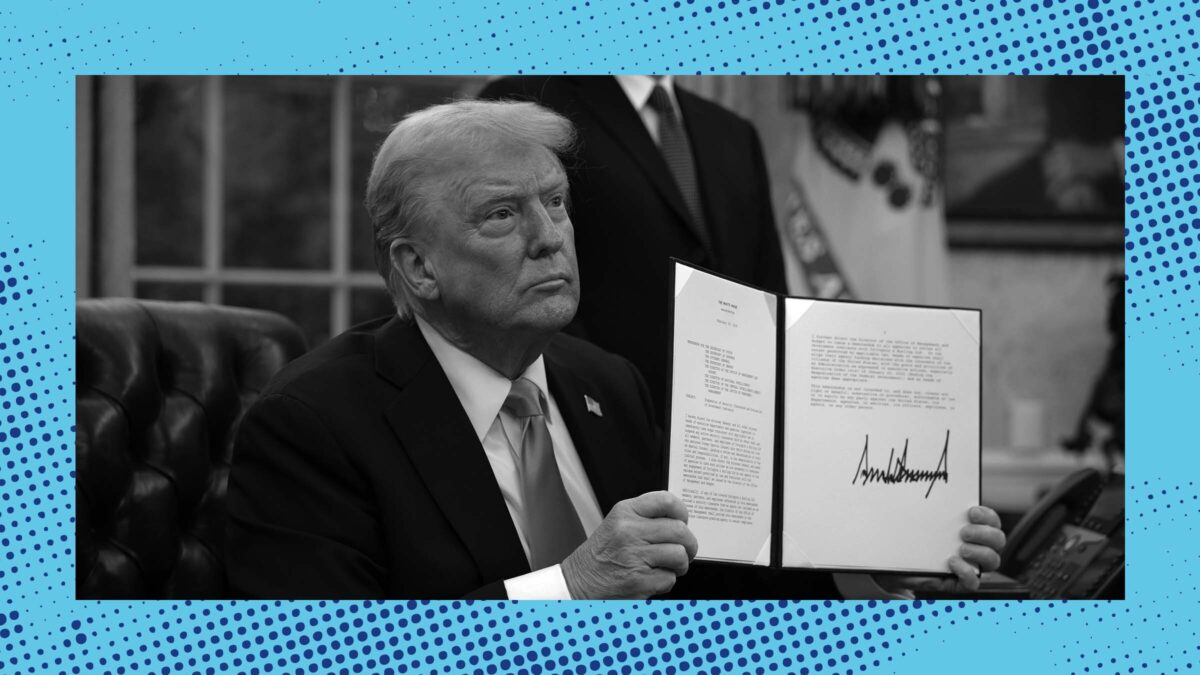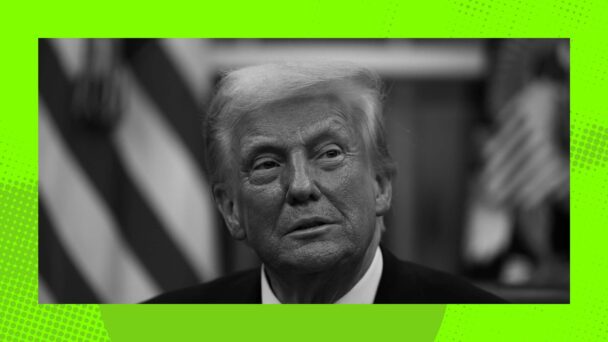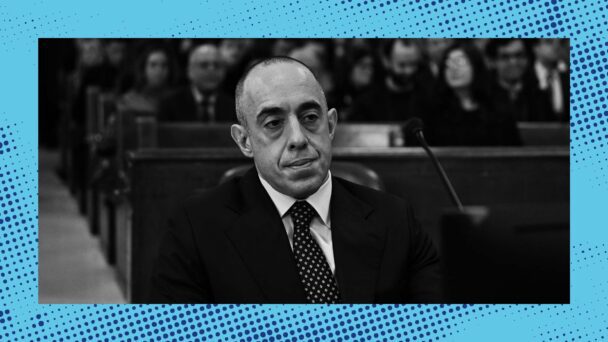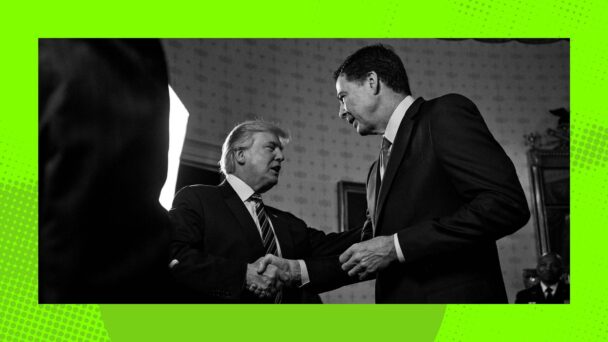On Monday, President Donald Trump signed an executive order pledging to “unleash high-impact local police forces” across the country, thereby empowering officers to “aggressively” enforce the law. It promises a “surge” of federal resources to boost officer pay, to expand programs that allow police departments to procure surplus military equipment, and, for good measure, to “promote investment in the security and capacity of prisons.” Finally, a president who understands the most serious threats to public safety in America: shrinking-violet cops who feel a little too accountable, and a prison system that needs more cells.
The order also directs Attorney General Pam Bondi to ensure that cops who “unjustly” face liability “for actions taken during the performance of their official duties” have the legal and financial resources they need to defend themselves. But instead of having the Justice Department do this work itself, the order farms it out to the array of BigLaw firms that have fended off punitive executive orders by, among other things, pledging to donate millions of dollars’ worth of pro bono hours to the president’s pet projects. What this means is that the firms who rolled over to Trump’s demands could soon be fulfilling their contractual obligations by providing free legal counsel to cops who kill unarmed people.
When Trump began announcing these deals, many firms downplayed the real-world significance of their decisions to capitulate, framing the details as insignificant footnotes to artfully negotiated resolutions of crises that could have put the firms out of business. According to The New York Times, management at one firm assured colleagues that they would remain “completely free” to accept or reject pro bono matters as they saw fit; another said that the contemplated pro bono collaborations would advance causes that the White House and the firm “both support.”
Trump, to the surprise of no one except the firms who signed on the dotted line, interpreted the intended scope of work much more narrowly. In his view, these firms are now foot soldiers for the Republican political agenda, at his disposal for negotiating trade deals, drafting coal industry leases, representing him in court, and obediently completing any other projects he assigns. Requiring these lawyers to also defend trigger-happy sheriff’s deputies is the perfect distillation of his campaign to bring the legal profession to heel: leveraging the continuing threat of state sanctions for the benefit of other state actors who abuse their power just as gleefully.
Many firms highlighted the fact that their deals with Trump did not require them to make any “admissions of wrongdoing.” This bit of legalese is, as the kids say, cope: a useful talking point for lawyers eager to justify the time and expense associated with tedious, exhausting settlement talks, but of little comfort to the associates who will be spending their afternoons in immigration court, cross-examining unrepresented toddlers facing deportation who pass the time by playing with toy race cars in the aisle, waiting for their names to be called.
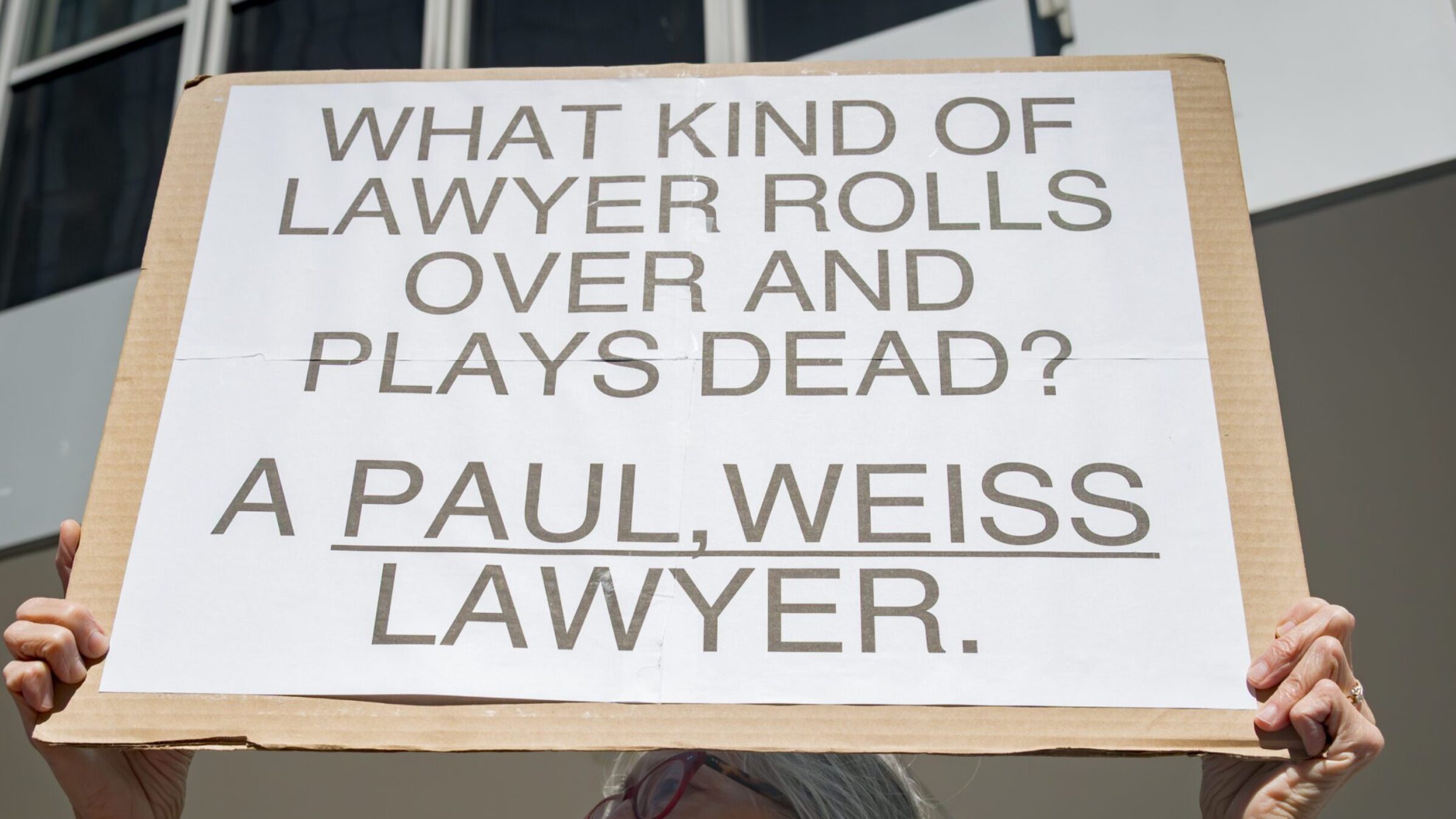
(Photo by Erik McGregor/LightRocket via Getty Images)
Even now, Trump says he was “surprised” at how uninterested the firms seemed in putting up the fight he expected, given his (correct) understanding that their surrender would entitle him to their unlimited free labor for whatever he wants, and for as long as he feels like demanding it. “These are the most powerful firms in the world, and they just signed whatever I put in front of them,” he told ABC News this week. “I’ve never seen anything like it.”
The disconnect here stems not only from these lawyers’ desperation to save themselves, but also from their assumption that they could negotiate with Trump as they would with opposing counsel in, say, a products liability class action. By coming to the bargaining table, they believed they could hammer out a formal, binding, and (most importantly) permanent resolution with a fellow professional who wanted the same result. In the moment, the concessions Trump sought—donated pro bono hours, abandoned DEI programs, and so on—felt like an eminently fair price to pay for his commitment to leave them alone. (Especially for firms that were not all that particular about pro bono hours or committed to diversity in the first place.) Nothing was more important than putting this unpleasant matter behind them as quickly as possible, so that partners could get back to doing what matters most: billing their time at $2000 an hour.
These firms’ perhaps-unwitting integration into the Cops Are Troops Now executive order makes clear just how badly they misread the stakes of these settlements, which were thinly-disguised tests of mettle they failed in spectacular fashion. Going forward, any firm that attempts to object to their forced participation in this (or any other) executive order—perhaps on the grounds that pro bono work is supposed to be for “persons of limited means,” and defending cops who beat the shit out of protesters does not qualify as such—is going to be right back in his crosshairs, primed for another round of ritual humiliation. They’ve already demonstrated they’ll roll over once; surely they can be persuaded to perform the same trick again.
Part of being a big-shot lawyer is believing that you are the smartest person in the boardroom—that you have the skills and the savvy to talk anyone out of anything, and that by virtue of being a big-shot lawyer, are better equipped for this delicate task than anyone else. But Trump never intended to “settle” his disputes with these firms, because he has spent his entire career treating unconditional surrender as the only form of “settlement” he will accept. You cannot make him go away by paying the price he demands. You only demonstrate your willingness to pay an even higher premium when he comes back to collect it.
